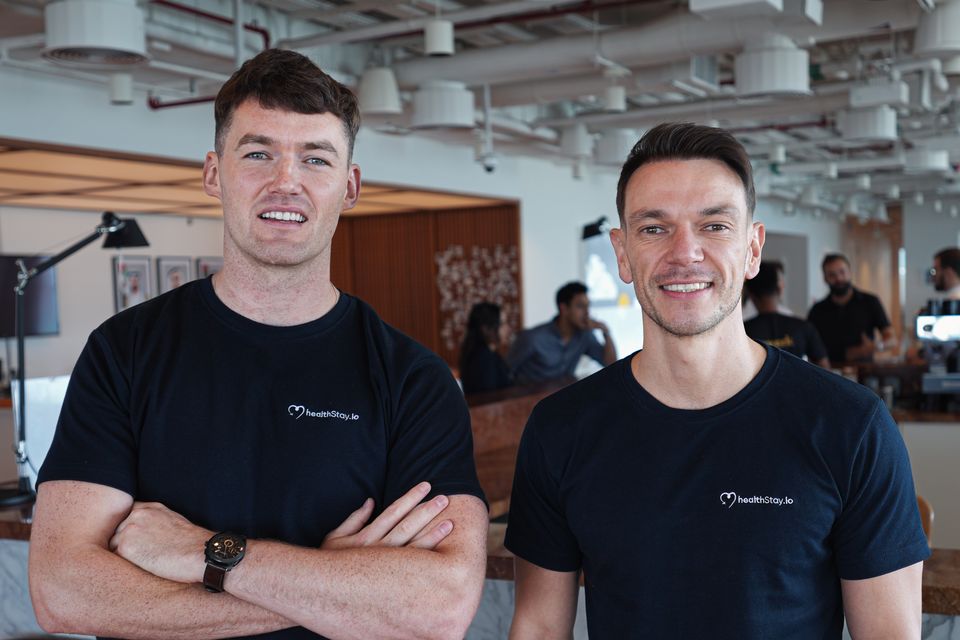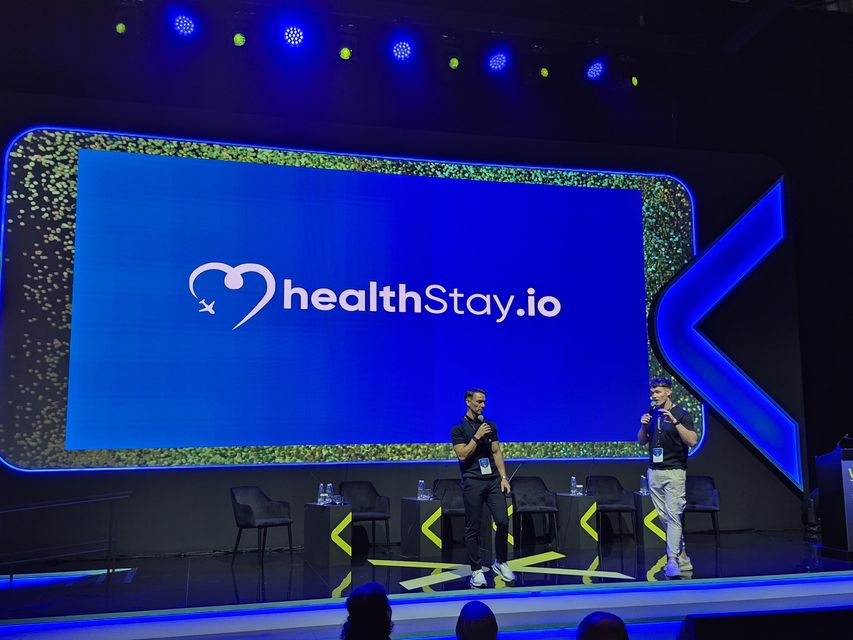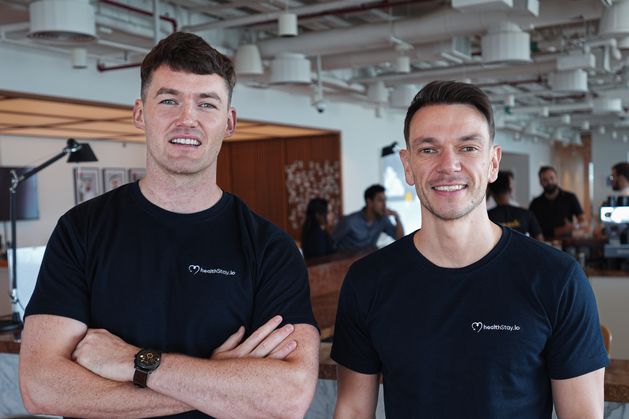healthStay.io is a software for hospitals requiring digital infrastructure to facilitate international patients
HealthStay.io, a medical tourism company, is the brain child of Seán Conaty (38), from Co Meath, and Ruairí Tubrid (32) from Wexford, and was one of 17 companies chosen for the programme, which receives thousands of global applicants every year.
Both coming from a background in education, the pair joined forces in January 2023, after having attempted to navigate complexities that existed in the field of medical tourism, a term used to describe the process of patients travelling overseas to receive healthcare.
Hub71 is an initiative of Mubadala, an investment arm of the Abu Dhabi Government, providing successful applicants and their start-ups with benefits such as office space, visa credits and minor investment.

Today’s News in 90 Seconds – September 22nd
“The focus of Hub71, is to attract the leading start-ups globally, to set-up their headquarters in Abu Dhabi,” said Mr Tubrid.
“Mubadala created Hub71 and it’s to be the accelerator programme of the region. They’re partnered with Tech Star and Plug and Play, both accelerator programmes based in US,” said Mr Conaty when speaking about the Silicon Valley feel to the Hub71 ecosystem.
HealthStay.io provides a database for hospitals regarding international patients, and allows patients easier access to overseas healthcare.
Their software which is already in use by hospitals and clinics in the UAE, has just closed funding of $1.5m, which its founders say will help them to “continue building out our team, and develop the software that it is,” said Mr Tubrid, who moved to the UAE to work as a primary school teacher in 2020.
“It’s a universal product, and can be used by hospitals globally, that require digital infrastructure to facilitate their international patients,” he added.

Founders of healthStay.io presenting at WHX Tech in Dubai World Trade Centre, this month
“When we sat down with hospitals and their medical tourism teams, we realised that they had absolutely no digital infrastructure in-house,” said Mr Conaty, when describing how manual processes were slowing down the hospital system sales teams, who mainly were using WhatsApp and emails to contact patients and doctors.
In terms of how this positively impacts patients, Mr Tubrid said they have recently been able to assess the results of this through feedback from hospitals.
“We were always concentrating on fixing the problem in the hospitals, but now we’re getting to see the flipside of that, where it’s actually making a difference to patients and the stress of travelling abroad for healthcare,” Mr Tubrid said.
“The hospital organises their visa for them, and in relation to payments and passing documentation across to the hospital, it’s all organised within the porthole – their treatment plan, their doctors details, and any touchpoints that they may have in terms of telemedicine or even airport pickups – it’s all there in one focused system,” he added.
Regarding the price of the annual license, it depends on the level of software customisation required by the hospital.
When asked about when we can expect to see healthStay.io in operation in Ireland, Mr Tubrid said that the focus for now will be on continuing to increase validation and contracts in the UAE, with an aim to liase with some major players in the UAE healthcare system.
“From there, the plan is to scale across the region, and then the larger markets obviously from a European perspective would be Germany, Turkey and Spain, countries that have a large amount of in-bound traffic,” said Mr Tubrid.
